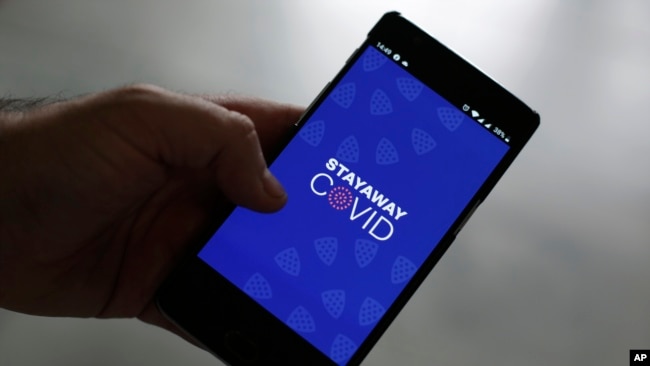びっくりでしたね!!
フランスではたったの4%とは。日本も低いですが。。。
それでは聞いてみましょう。
本日のVOAニュース!!!
コロナウイルス追跡アプリを使用しているヨーロッパ人は予想よりも少ない
Fewer Europeans Using Coronavirus Tracing Apps than Expected
コロナウイルスの拡散を遅らせるために設計されたスマートフォンのアプリは、ヨーロッパでは低い利用率となっています。
この追跡システムは、ウイルスを持っていることが後に確認された人の近くにいたかどうかを人々に知らせるように設計されています。一部の国では、このようなアプリの開発にいち早く着手しています。このアプリは、コロナウイルスを倒すための重要なツールと考えられています。
新しいコロナウイルスが流行しやすい理由の一つは、感染者の多くが病気の兆候をほとんど見せないことです。感染した人の近くにいたことを知った人は、すぐに隔離したり、治療を受けたりすることができます。
しかし、ヨーロッパではアプリを利用している人はほとんどいません。一部の国ではアプリの使用を中止しています。他の国では、使用率が低いために技術が効果的でないと言われています。
フィンランドとアイルランドでは、人口の約3分の1がアプリを使用しています。ドイツでは約22%の人がアプリを使用しています。しかし、フランスでは利用率はわずか4%です。
当初、保健当局は人口の約60%を目標にしていました。この目標は、4月に発表されたオックスフォード大学の研究に基づいていました。この研究の研究モデルでは、少なくとも60%の人口が接触者追跡アプリを使用していれば、ウイルスの拡散を食い止めることができると予測しています。研究では、使用率が低くても、コロナウイルスの症例数と死亡者数を減らすことができることを示唆しています。
ヨーロッパの追跡アプリのほとんどは、グーグルとアップルが開発したスマートフォンの技術に基づいています。アプリはブルートゥースの無線技術を利用して、お互いに近くにいる機器同士が情報を交換することを可能にしています。この技術は、ブルートゥースの信号の記録を作成します。感染したデバイスユーザーは、その情報を共有して他の人に感染の可能性を警告することができるのです。
北欧の小規模な国では、人々に自発的にアプリを使用してもらうことに最も成功しています。これらの国に住む人々は、一般的に政府への信頼度が高くなっています。また、これらの国の人々は、新しいテクノロジーを受け入れようとする人が多い傾向にあります。
フィンランドのアプリは、9月の初めに開始されると、すぐにヨーロッパで最も人気のあるアプリの一つになりました。最初の24時間で約100万ダウンロードされました。現在、国内550万人のうち約3分の1がこのアプリを持っているます。
フィンランドのユーザーの中には、アプリを手に入れることは重要な市民的責任だと考える人もいたといいます。「仲間の市民や身近な人の健康に気を配るのは私たちの義務です 」と、ヘルシンキに住む44歳の写真家、ウィリアム・オーシュ氏は語っています。
フランスのアプリは、データの集中保管システムを使用していて、プライバシー保護活動家はその方法を批判しています。このアプリの利用率はわずか4%に過ぎません。
ノルウェー当局は、携帯電話の位置情報の使用に関するプライバシー上の懸念のため、その国のアプリを停止することを余儀なくされました。
ドイツの当局者は、国の追跡アプリが技術的な問題を有しており、一部のユーザーがそれを使用して困難を抱えていたことを認めています。しかし、システムの成功がまた見られると、指摘しています。保健大臣のイェンス・スパーン氏は、アプリは最初の100日間で120万件のコロナウイルス検査結果を研究所からユーザーに送信するために使用されたと述べています.
「検査結果の迅速な送信は大きな違いを生むのです」とスパーン氏は言います。同氏は、可能性のある接触者の追跡は、開始が早ければ早いほど効果的であると指摘しています。検査結果が陽性だった約5,000人が、近くにいた他の人に警告するためにアプリを使用していたとスパーン氏は付け加えました。
当局は、アプリがユーザーに送る警告メッセージの改善を計画しているといいます。その目的は、ユーザーが次に何をすべきかについて、より明確なガイダンスを提供することにあるのです。
Fewer Europeans Using Coronavirus Tracing Apps than Expected
 A man shows the contact tracing app Stayaway Covid on his cellphone, in Lisbon, Thursday, Sept. 17, 2020. The smartphone app uses Bluetooth technology to help discover whether people have been in close proximity to someone infected with COVID-19. (AP Photo)
A man shows the contact tracing app Stayaway Covid on his cellphone, in Lisbon, Thursday, Sept. 17, 2020. The smartphone app uses Bluetooth technology to help discover whether people have been in close proximity to someone infected with COVID-19. (AP Photo)
Smartphone apps designed to slow spread of the coronavirus have experienced low usage rates in Europe, where virus cases are again rising in several countries.
The tracing systems are designed to let people know if they were near someone who was later confirmed to have the virus. Some nations moved quickly to develop such apps. The apps are considered an important tool in helping defeat the coronavirus.
One reason the new coronavirus spreads easily is because many infected individuals show few or no signs of sickness. If a person learns they had been near someone who got infected, they could immediately isolate or seek treatment.
But few people in Europe have used the apps. Some countries there have discontinued them. Other nations have said low usage rates make the technology ineffective.
On the high end, about one-third of the population uses the apps in Finland and Ireland. In Germany, about 22 percent of people use them. But in France, the usage rate is just 4 percent.
In the beginning, health officials targeted about 60 percent of the population. That goal was based on an Oxford University study published in April. Research models in the study predicted the virus spread could be stopped if at least 60 percent of populations used the contact tracing apps. The study suggested that even with lower usage levels, the number of coronavirus cases and deaths could be reduced.
Most European tracing apps are based on smartphone technology developed by Google and Apple. The apps use Bluetooth wireless technology to permit devices that are near each other to exchange information. The technology creates a record of the Bluetooth signals. Device users who have become infected can share that information to warn others about the possibility of infection.
Smaller countries in Northern Europe have been most successful at getting people to voluntarily use the apps. People living in those countries generally have higher levels of trust in the government. Those countries are also likely to have more people willing to accept new technologies.
Finland’s app quickly became one of Europe’s most popular when it launched at the start of September. It received about 1 million downloads within the first 24 hours. Currently, about one-third of the country’s 5.5 million people have the app.
Some Finnish users said they thought that getting the app was an important civic responsibility. “It’s our duty to take care of the health of our fellow citizens and those close to us,” said William Oesch, a 44-year-old photographer in Helsinki.
France’s app uses a centralized data storage system. Privacy activists have criticized that method. The app has a usage rate of just 4 percent.
Officials in Norway were forced to halt that country’s app because of privacy concerns over its use of phone location data.
German officials admit that the country’s tracing app has experienced technical issues and some users had difficulties using it. But they note that the system has also seen success. Health Minister Jens Spahn said the app was used to send 1.2 million coronavirus test results from laboratories to users during its first 100 days.
“The faster transmission of test results makes a huge difference,” Spahn said. He noted that the tracing of possible contacts is more effective the sooner it begins. Almost 5,000 people with positive test results had used the app to warn others they had been near, Spahn added.
Officials say they plan to improve the warning message the app sends to users. The aim is to provide clearer guidance on what those users should do next.
_______________________________________________________________
Words in This Story
app – n. a program for a smartphone or other device that performs a special function
isolate – v. to separate from other people or things
trace – v. to find the origin of something
fellow – adj. used to describe people who share the same interests or situation
location – n. a place or position
transmission – n. the process of passing something from one person to another
positive – adj. in a medical test, positive means the person being tested has a disease or condition